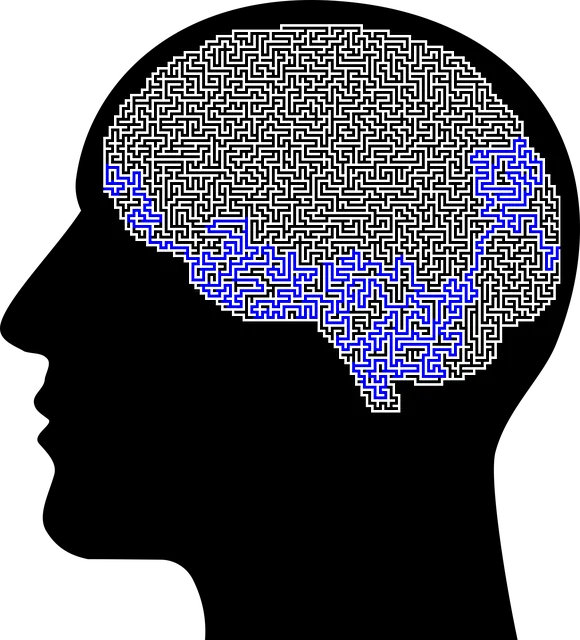In today's fast-paced world, mental wellness is a paramount concern, leading to increased demand for accessible coaching programs that empower individuals with tools to navigate challenges. Westminster Kaiser Permanente (WKP) offers an extensive mental health coverage program as part of its holistic healthcare approach, including workshops on stress management and crisis intervention. Their curriculum incorporates evidence-based practices, cultural competency training, and modules on building resilience, emotional intelligence, and burnout prevention. By aligning coaching initiatives with existing mental health policies, WKP ensures a cohesive support system. Measuring the impact through structured evaluations and feedback mechanisms demonstrates the program's success in enhancing overall well-being.
Mental wellness coaching programs are gaining prominence as essential tools for promoting holistic well-being. This article explores the development and implementation of such programs, with a specific focus on the impact of Westminster Kaiser Permanente mental health coverage. We delve into understanding the growing need for these initiatives, designing effective curricula, integration strategies, and measuring their success. By examining real-world examples, we highlight how coaching can revolutionize mental healthcare access and outcomes.
- Understanding the Need for Mental Wellness Coaching Programs
- Westminster Kaiser Permanente Mental Health Coverage: A Comprehensive Overview
- Designing Effective Coaching Curricula and Frameworks
- Integration Strategies for Successful Program Implementation
- Measuring Impact: Evaluating the Success of Mental Wellness Coaching Initiatives
Understanding the Need for Mental Wellness Coaching Programs

In today’s fast-paced world, mental wellness has emerged as a paramount concern for individuals across various demographics. The demand for accessible and effective support systems has led to a growing recognition of the value offered by mental wellness coaching programs. These initiatives aim to empower people with tools and strategies to navigate life’s challenges, enhance resilience, and foster positive thinking.
Westminster Kaiser Permanente’s mental health coverage underscores the increasing importance of such programs. By offering comprehensive support, these workshops and organizations focus on stress management techniques, promoting a holistic approach to mental wellness. Through interactive sessions and tailored guidance, participants can develop skills to manage stress, improve overall well-being, and create lasting positive changes in their lives.
Westminster Kaiser Permanente Mental Health Coverage: A Comprehensive Overview

Westminster Kaiser Permanente offers a comprehensive mental health coverage program designed to support members in their journey towards better mental wellness. This program is part of their commitment to holistic healthcare, focusing on both physical and psychological well-being. The coverage includes a range of services such as therapy sessions with licensed professionals, stress management workshops organized by the organization, and crisis intervention guidance tailored to individual needs.
Members have access to various resources aimed at self-care routine development for better mental health. This may include mindfulness practices, meditation techniques, and other evidence-based strategies to manage stress and improve overall resilience. The program’s goal is to empower individuals with the tools and knowledge necessary to navigate life’s challenges and maintain a healthy balance, ultimately enhancing their quality of life.
Designing Effective Coaching Curricula and Frameworks

Developing effective coaching curricula is a multifaceted process that requires careful consideration of various elements to ensure comprehensive and impactful mental wellness programs. At Westminster Kaiser Permanente, for instance, the focus lies in creating structured frameworks that cater to diverse needs. This involves integrating evidence-based practices and tailoring content to align with the latest research in mental health care. A robust curriculum should incorporate modules on building resilience, stress management techniques, and emotional intelligence, ensuring a holistic approach to coaching.
The framework design should also prioritize cultural competency training, especially within healthcare settings, to address the unique challenges faced by diverse populations. By incorporating Trauma Support Services and Burnout Prevention strategies, coaches can effectively support individuals from various backgrounds and experiences. This tailored curriculum ensures that mental wellness coaching programs are accessible, relevant, and equipped to handle a wide range of issues, ultimately enhancing the overall effectiveness of care.
Integration Strategies for Successful Program Implementation

The successful integration of mental wellness coaching programs within institutions like Westminster Kaiser Permanente requires a strategic approach. One key aspect is aligning program objectives with the existing mental health coverage and policies, such as those offered by Kaiser Permanente, to ensure a cohesive and effective support system. By understanding and leveraging these frameworks, coaches can provide tailored guidance that complements standard care practices.
Furthermore, fostering collaboration between coaching initiatives and established mental health resources is vital. This integration can be facilitated through open communication channels and coordinated efforts in addressing concerns like anxiety relief, burnout prevention, and the broader Mental Health Policy Analysis and Advocacy. Such strategies ensure that the program becomes an integral part of the overall wellness ecosystem, promoting holistic mental well-being for all participants.
Measuring Impact: Evaluating the Success of Mental Wellness Coaching Initiatives

Measuring the impact of mental wellness coaching programs is crucial for evaluating their success and effectiveness. Organizations like Westminster Kaiser Permanente have recognized the importance of mental health coverage, integrating it into their comprehensive wellness initiatives. By implementing structured evaluation methods, organizations can assess the tangible benefits derived from these coaching sessions. This involves tracking participant progress through pre-and post-program assessments, focusing on key areas such as stress levels, self-Awareness Exercises, and inner strength development.
Regular feedback mechanisms and follow-up surveys are essential tools to gauge long-term outcomes. These assessments can reveal how the workshops on stress management and other organizational programs contribute to improved mental wellness in the workplace. The data collected provides insights into the program’s reach, impact, and areas for improvement, ensuring that resources are allocated effectively to foster a healthier and more productive environment.
Mental wellness coaching programs, as evidenced by Westminster Kaiser Permanente’s comprehensive mental health coverage, are invaluable tools for promoting holistic well-being. By designing effective curricula, integrating them into existing healthcare systems, and meticulously measuring their impact, we can ensure that these programs become game changers in navigating the intricate landscape of mental health support. Through continuous evaluation and adaptation, we can foster vibrant communities where mental wellness coaching initiatives thrive, enhancing the lives of those they touch.






